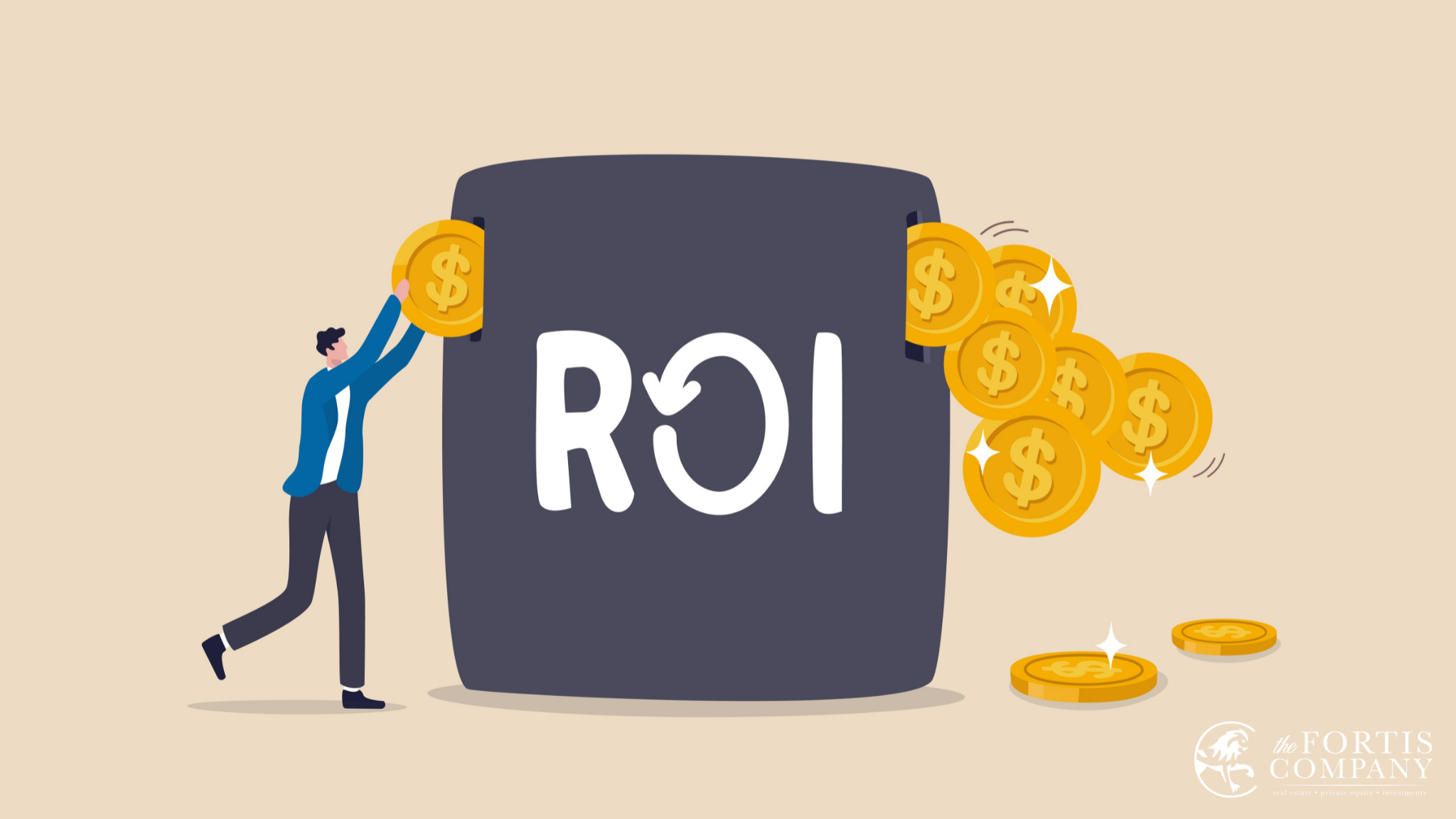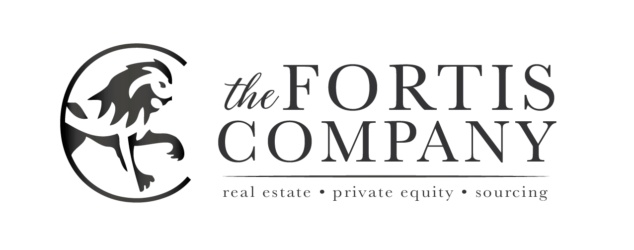How to Calculate Your ROI On A Potential Real Estate Investment

How do you calculate the ROI on a rental property?
If you are a first-time landlord or a seasoned investor, evaluating your return on a possible real estate investment is essential, and a rental property calculator may help. A residential rental property is a dwelling that is owned by a property investor and then rented out to tenants who pay rent. Single-family homes or multi-family apartment buildings, condominiums, townhouses, duplexes, and other types of rental properties are available. Depending on the property’s location and the investor’s objectives, they may choose either a long-term or a short-term rental.
Investing in rental homes may be a very appealing and profitable source of income, and it is regarded as one of the safest investments one can do. This is because rental property investments provide long-term appreciation, monthly cash flow, and tax benefits. Furthermore, most people have rented or signed a lease at some point in their lives, so they are familiar with the process, making learning to be a landlord more engaging and less daunting. Many independent landlords use online property management software to simplify the leasing process. As you begin your investment adventure, we have a guide below to help determine if a specific investment is a good fit for you. Need more information on how it works and what each input means?
What do the inputs and outputs mean?
Rental property investing may appear complicated at first, but after you learn the typical words used when evaluating your rate of return on a given property, you’ll be an expert in determining whether or not to invest in it. Here are some key definitions for the rental property calculator’s inputs and outputs:
Inputs
Property Details
The property value/purchase price, property repair costs, square footage, and number of bedrooms are all listed in the property details section. The purchase price is normally the seller’s asking price, which can certainly be negotiated once you decide to buy the property. Repair expenses are the expected total of repairs that will need to be completed or renovations that you may be doing. The square footage and number of bedrooms are significant since understanding how big the property is and how many bedrooms it has will affect its value as well as your future rent price.
Mortgage Details
The loan duration (years), down payment, closing costs, and interest rate are all included in the mortgage specifications. This will vary depending on the property – if you are acquiring a property in cash, this will not be necessary. Remember that down payments are normally 10 to 25% of the buying price, and closing expenses are typically 2 to 5% of the purchase price.
Rental Income Details
The rental revenue statistics include the monthly rent income, other monthly income, and the percentage of vacancy expected. The monthly rent is the total anticipated monthly rent when the property is fully rented – for more information on how to price your rental, go here. Parking fees, coin-op laundry, and pet leasing are examples of additional monthly revenue. If you are unsure about the vacancy rate, the national average is roughly 7% – this percentage will be applied to both rent and other income.
Monthly Rental Expenses
Monthly rental expenses are the costs of running your rental property. These include things like upkeep, repairs, utilities, monthly HOA fees, and property management expenses, as shown by calculating the inputs. If you own an older property, your running costs may be higher due to increased upkeep and wear and tear.
Annual Rental Expenses
The annual rental fees include property taxes and an annual insurance premium – keep in mind that these are total costs for the year, not monthly prices.

Property Operating Financial Outputs
Monthly Gross Potential Income
The monthly gross potential income is the entire amount of money that can be made when a property is fully occupied. This figure represents the entire income that a property could generate, but it does not guarantee that it will.
Monthly Vacancy Loss
The monthly vacancy loss is the amount of income you can expect to lose owing to vacancies – this is determined by the predicted vacancy rate percentage you entered above. Remember that the national average is 7%.
Monthly Effective Gross Income
The effective gross income (EGI) is calculated as gross potential income minus vacancy loss. The EGI is useful in determining the gross revenue you can expect to get because it accounts for probable vacancies, which could reduce your revenue at the property.
Monthly Management Fee
The management charge is the expense of managing the rental if you employ a property manager or someone else to assist you.
Total Monthly Operating Costs
The total monthly operating cost is the cost of running the property on a monthly basis, which includes repairs, maintenance, insurance, and other expenses. Keep in mind that older properties may have greater monthly expenses due to the need for more repairs. Furthermore, this excludes any substantial maintenance or capital expenditures that may be required in the future.
Net Operating Income (NOI)
Computing monthly and annual net operating income (NOI), is defined as effective gross income minus operating expenses. It indicates the profitability of your investment by excluding all expenses other than mortgage payments that you plan to incur.
Annual Debt Service (Mortgage Payments)
Your mortgage payment is the annual debt service (both principal and interest). It is critical to understand if your mortgage payment, in addition to other expenses, will be financially doable for you, and so the annual debt service helps you understand if it makes sense to invest in the property.
Annual Cash Flow
The net operational income minus debt service is used to determine annual cash flow. This is the annual profit (or loss) from your rental after all expenses and mortgage payments are deducted.
Rate of Return Outputs
Cap Rate
The cap, also known as the capitalization rate, is the expected rate of return on a rental property investment. The cap rate excludes financing, which distinguishes it from the effective return on investment (ROI) — this is how you examine a property based on non-mortgage expenses and revenue. To determine the cap rate, divide the net operating income (NOI) by the property’s price or current market value. The cap rate is a quick and easy tool to acquire insight and compare rental investment prospects. If you pay cash for a property, your ROI would be the cap rate.
Cash-on-Cash Return
The cash-on-cash return is the amount of money you can expect to make from the money you put into your rental property. In simpler terms, it is the amount of cash flow you may expect to receive each year as a percentage of the total amount of money you invested. It is computed by dividing the after-tax annual cash flow by the acquisition price of the rental property.
Multiplier for Annual Gross Rent
The gross rent multiplier, or GRM, is derived by dividing the property’s total sales price by the annual gross rent. This is the measurement of the investment’s value — it helps you realize if the asking price of a property is too high or too low, especially when compared to others in the same neighborhood.
Annual Gross Rent Multiplier
The gross rent multiplier, or the GRM, is calculated by the total sales price of the property by the annual gross rent. This is the measurement of the value of the investment – this helps you understand if the asking price of a property is expensive or in the correct range, especially when you compare it to others in the same area.
Property Detail Outputs

Purchase Price Per Square Foot
The purchase price per square foot is useful in calculating the price in relation to the size of the property or if it is a new construction.
Purchase Price Per Bedroom
When renting out a home per room and comparing the various property costs by bedroom, the purchase price per bedroom will be important information. If you are a landlord near a university and intend to rent to students, you can anticipate to have leases with many tenants, which means the price per bedroom will help you evaluate the ROI.
Here is a great online calculator tool we like that will assist you in determining a good investment opportunity or not.
FAQs
What is a good ROI for a rental property?
A terrific ROI for a rental property is often greater than 10%, but 5-10% is also an acceptable and more normal return. Remember that a 10% return assumes you’ve precisely estimated all of your expenses and costs. Here is a great online calculator to use!
Do I need to use a property manager for my rental?
It is totally up to the real estate investor to hire a property manager. If you do not reside in your rental or have a different full-time work, having a property manager is beneficial. Having a designated person to assist tenants with difficulties and ensure rent is paid is advantageous if you are unable to do it yourself – however, this will be an additional expense, so plan accordingly.
Where are the best places to buy a rental investment property?
The greatest places to acquire rental investment property will be determined by your ambitions as a property investor as well as your location. If you live in a high-priced area, long-distance land-lording is a viable option in this day and age.
How much are typical rental property expenses?
The cost of renting out a property varies based on the type of property and where it is located. Utilities, water, garbage, maintenance, insurance, and possibly HOA fees are typical expenses. Typically, landlords would charge tenants for some of these items, such as utilities and water, or they will have tenants set up each and pay for it through their own account. Calculating these expenses using the rental property calculator (like the one suggested above) is required for it to produce an appropriate rate of return.
I bought a property, but how do I become a landlord?
After you’ve purchased and potentially refurbished your rental property, becoming a landlord may appear to be a difficult endeavor at first. However, with some research and the use of online property management tools, you will be well on your way to success in no time. Learn more about producing passive income with real estate in this article. We go through everything you need to know, including the perks, long-term advantages, and useful resources. When looking for the best online property management software, make sure to identify your requirements and extensively investigate which one offers the most features and the greatest user experience.
At The Fortis Company, our mission is to create long-term growth by utilizing our expertise and relationships to expand markets by improving operation practices. If you’re interested in learning more about private equity investing, contact us today!




